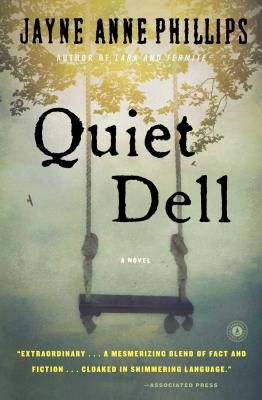
Saturday morning, time to kill, cup of tea. You know what that means, Twitter: #Storytime.
New folk; #Storytime: in which I write a story from scratch, live and on Twitter. And it always starts like this: There is a story the bees used to tell, which makes it hard to disbelieve.
The King of a certain country considered himself a great artist. It could scarcely be otherwise, for his lackeys and courtiers assured him it was so. #Storytime
Of course, this what they were paid to do; but the King, who had never in his life known anything but flattery, assumed that their opinion reflected that of the people. #Storytime
“Your Majesty has great talent,” they said, the paint on their powdered faces cracking with the effort of maintaining a smile. “Your Majesty’s thoughts and musings are profound, and yet hilarious.” #Storytime
“Why yes,” said the King. “I suppose they are. They should reach a wider audience.” #Storytime
And so he set to writing a book, a compilation of all his thoughts and musings over a lifetime. It was not a lengthy book, nor a very well-written one. But the King had never worked as hard on anything in his life, and he was very pleased with himself. #Storytime
The book was duly published - a limited edition, hand-written on finest vellum and bound in purple calf-skin, with marbled endpapers and sprayed edges. #Storytime
Copies were sent by special envoy to every critic in the land. The King awaited his reviews. But outside the Palace, the flattery that he had come to expect as his due was somewhat slow in coming. #Storytime
In fact, the critics seemed unimpressed by the monarch’s wisdom; still less by his hilarious wit. #Storytime
As for the people, no-one could afford to buy the King’s masterpiece. And so it was forgotten, and although all his lackeys and courtiers assured him most strenuously that it was the most entertaining book that had ever been published, the King began to doubt them. #Storytime
“Why am I not appreciated?” said the King, most plaintively.
The couriers and lackeys grinned and fawned, and yet they could not tell him. #Storytime
The couriers and lackeys grinned and fawned, and yet they could not tell him. #Storytime
The King reflected for awhile. “Bring me the best writers in the land,” he said. “Let me learn their secrets.” #Storytime
And so the best writers in the land were brought before the monarch. Poets; novelists; playwrights; writers of memoir – each one the best in their chosen field. The King greeted them eagerly. “Tell me, fellow-creators,” he said. “What is the secret of your success?” #Storytime
One by one, they shook their heads. “There is no secret, Your Majesty. Only perseverance, luck, hard work, and the ability to make something that speaks to the heart.” #Storytime
The King said: “But I already have all these qualities. Why then do the people not appreciate my work?”
One by one, the artists shrugged, but not one of them answered. #Storytime
One by one, the artists shrugged, but not one of them answered. #Storytime
And so the King summoned his soldiers and had all the writers beheaded. “There were too many artists,” he said. “The people were clearly overwhelmed. Now, at last, my work will gain the prominence it rightly deserves.” #Storytime
And so he summoned the best storytellers and actors in the land, and ordered them to take his work and to broadcast it in every marketplace. But still the people ignored his work: and the King was very much enraged. #Storytime
“The medium must be at fault,” he said, and had all the storytellers and actors executed. #Storytime
Then he summoned the best of all the other art forms: the dancers, the painters, the sculptors. “Bring my work to the people,” he said, “and I shall reward you richly. “Fail, and you shall suffer the same fate as the other artists.” #Storytime
And so the dancers and sculptors and painters went out into the kingdom, to try to win the enthusiasm of the common people for the King’s book. #Storytime
Soon there was nowhere in the land where the story was not told through one medium or another; and yet, the people remained indifferent to the King’s talent. #Storytime
Until, one day, the King heard news that a man in the city marketplace was drawing in huge audiences. #Storytime
In disguise, the monarch came to watch the man’s performance. He was a puppeteer - a skill that the King had hitherto neglected – and his performance was indeed inspired by his royal patron’s work. #Storytime
But the joy felt by the King at this was soon replaced by anger, as he found that the puppet delivering the lines resembled him very closely. #Storytime
It was a ridiculous puppet; a caricature with a giant head, wearing an enormous crown. Every time this puppet appeared, the audience would roar with mirth; and the King shook with rage as he understood that he was being mocked by his people. #Storytime
Casting off his disguise, he stood before them in the marketplace. “Am I not your King?” he roared. “Do I not have the power to have every one of you executed?”#Storytime
The people turned to stare at the King. But although they had all seen his face on coins, few of them had seen him in life, and never without his royal attire. #Storytime
Assuming he was part of the show, they began to laugh once more, applauding his performance. And the King felt his anger ebbing away. #Storytime
“I am a great wit, after all,” he said, with a fond smile at his audience. #Storytime
And the audience repeated, laughing: “Great twit! Great twit!” and the King went home, once more secure in the knowledge that he was respected, admired, and known to be a great artist. #Storytime
the end
the end
• • •
Missing some Tweet in this thread? You can try to
force a refresh
















